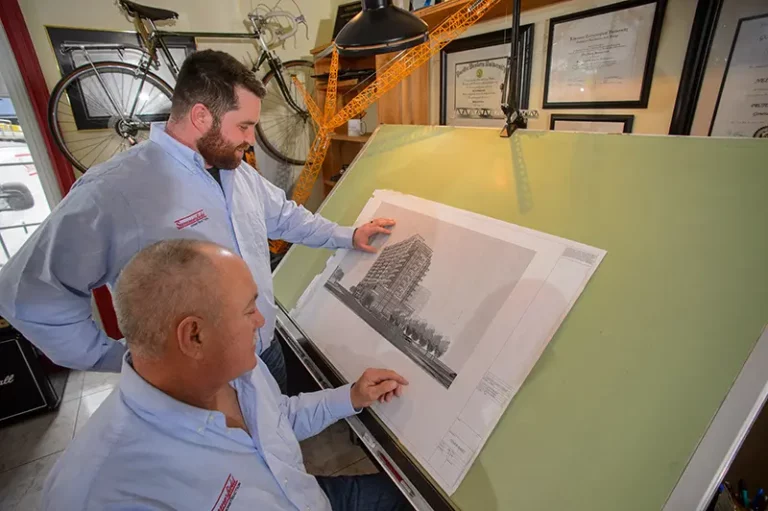With COVID-19 travel restrictions in place, many Windsorites with cross-border connections have been cut off from their loved ones since mid-March.
Although exceptions in early October made it slightly easier for some committed couples and immediate family to see each other, there are still many roadblocks on the journey to reunification.
A Grey Area
For Justin Knowlton and his now-fiancée, Blerina Beleshi, relaxed restrictions do little to help their particular situation. As an Albanian currently in the U.S. on a visitor’s visa, Beleshi is unable to travel to Canada, despite the fact that she and Knowlton have been together for more than a year.
“We’re in a grey area,” says Knowlton. “If she were a permanent resident, we could have our relationship notarized and she could come here. We applied for her Canadian visitor’s visa, but the IRCC isn’t processing those right now.”
After five and a half months, the couple were finally able to reunite when a friend informed Knowlton he could travel to the U.S. by air. He immediately booked a plane ticket, driving to Toronto to fly to Chicago then Detroit. Packed in his bag was an engagement ring.
Coordinating a secret plan with her family, Knowlton met with Beleshi’s parents to ask for their blessing, then whisked her away for the weekend and proposed under the stars.
“I couldn’t see myself spending my life with anyone else,” says Knowlton.
Knowlton returned home shortly after to begin his 14-day quarantine, but is planning to travel back for the holidays.
“Luckily I can work from home; otherwise I wouldn’t be able to do this.”
Family Matters
For those unable to work remotely, visitation remains out of the question.
Kyle Prestanski, a Chatham-area business owner, hasn’t seen his father since Christmas.
“It’s tough to see each other as it is sometimes,” says Kyle. “My wife and I run a business and my dad and his wife both work full time. We had plans to see each other, then the border closed.”
Prestanski’s father lives in Michigan about an hour outside of Detroit. They normally crossed as often as their schedules allowed, getting together on weekends and special occasions. Now, they communicate mainly via phone.
“We check in once a week, but a 15-minute call is just not the same as sitting down together,” says Prestanski.
The restrictions have also made family emergencies all the more difficult to deal with. When Prestanski’s stepbrother passed away suddenly in late summer, he was unable to be there to comfort his family in their time of grief.
“Your first instinct when something like that happens is to drop everything and go,” says Prestanski. “It’s weird to not be able to do anything about it. How do you convey sorrow? How do you give someone a virtual hug?”
Throughout this difficult period, Prestanski has tried to focus on the light at the end of the tunnel.
“One way we’re trying to get through it is to make plans for once things are over; to have something to look forward to,” says Prestanski.
Juggling Schedules
For Lisa Roy and her wife Lisa Schultz, planning is all they’ve been doing for the last nine months.
Married for just over eight months when COVID-19 hit, the cross-border couple was in the midst of filing for Schultz’s Canadian residency.
“We applied months before the pandemic, but our immigration specialist told us everything’s been put on hold,” says Roy, a Canadian healthcare worker. “We don’t even have a file number yet.”
In pre-pandemic times, the couple took turns alternating between Roy’s home in Windsor and Schultz’s home in Troy, Michigan.
When rumours of a border closure started in mid-March, Schultz used up all her vacation time at work to stay with Roy in Canada.
“When she left three weeks later, we had no idea when we’d be seeing each other again,” says Roy. “It was heartbreaking.”
The couple went seven weeks without seeing each other. When travel restrictions were lifted for spouses in June, Schultz was able to cross into Canada by showing her marriage license. She crossed again in October for Canadian Thanksgiving, each time abiding by the 14-day quarantine regulations.
“Thankfully her work allows her to switch shifts, but a lot of planning goes into it,” says Roy. “She is a first responder; it’s not easy for her to get 15 days off at a time.”
For now, the family will continue to juggle their schedules, anxiously awaiting a return to normalcy.
“My children love Lisa and they just want her to be here,” says Roy.
Highs & Lows
Meticulously rearranging work schedules has also allowed Canadian nurse Alecia Penney to see her now-fiancé, Brett Stowell.
Utilizing his ability to work remotely, Stowell spent a month with Penney when the initial closures were implemented. After that, Penney was able to juggle her schedule and fly to the U.S. in July.
“My coworkers have been my saving grace,” says Penney. “Trading shifts to help make this possible.”
Penney was able to visit again in October for her birthday. Unbeknownst to her, the celebration would be extra special.
Enlisting the help of mutual friends, Stowell had planned an elaborate proposal. Convincing Penney he was running late at work, he had a friend bring her to a secret destination.
“Her friend had a blindfold in the car and said, ‘we planned something special for your birthday so put this on and act surprised,’” laughs Stowell.
When they arrived, Stowell was waiting in a hot air balloon, down on one knee.
“I was very surprised!” recalls Penney.
After the whirlwind proposal and some time with friends and family, Penney once again returned to Canada for a 14-day quarantine.
“It’s going from such a high to such a low, coming home and not being able to go anywhere or see anyone for two weeks,” says Penney.
Rapid Testing and Absentee Ballots
The travel restrictions have also been tough on many cross-border grandparents.
Meghan Wolf, an American citizen living in Canada, hasn’t seen her parents since February. Her seven-year-old son Matthew misses his grandparents dearly.
“We usually see each other quite often—birthdays, holidays, weekend visits,” says Wolf. “It’s been tough.”
The new exceptions mean Wolf’s parents could potentially cross and quarantine. However, with their advanced age, being away from home for 14 days just isn’t feasible.
“My parents are in their late seventies, early eighties. They would be okay over here for a few days, but they just don’t feel comfortable being away from home for that long,” explains Wolf.
Until restrictions are eased further, the family will continue to stay in touch by email and FaceTime.
“I completely agree with the rules they have in place,” says Wolf. “But the 14-day quarantine is hard for a lot of people. Maybe if rapid testing was available it would be easier?”
As an American citizen voting in the 2020 presidential election, Wolf was also concerned about mail delays preventing her absentee ballot from reaching its destination in time.
“I paid almost $30 so I could track it and ensure it got there on time,” says Wolf. “It’s a small price to pay for the state of democracy.”
The Human Connection
While living in a time of video chats and texting has made it easier to stay connected, the families all point out that a screen is no substitute for a hug.
“It just doesn’t replace the physical contact,” says Knowlton.
“You don’t realize how important that actual human connection to your family is until you don’t have it,” echoes Prestanski. “We’re all just trying to adapt.”



